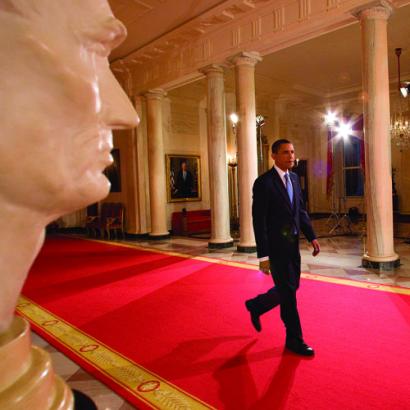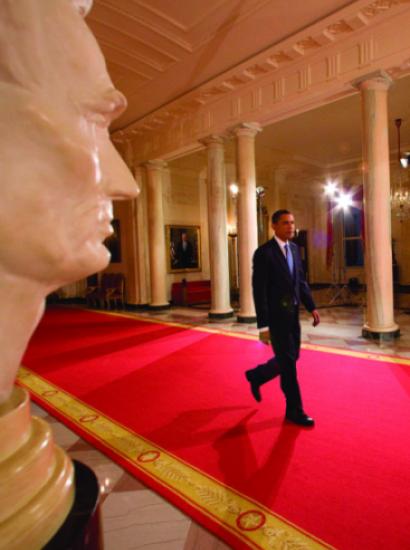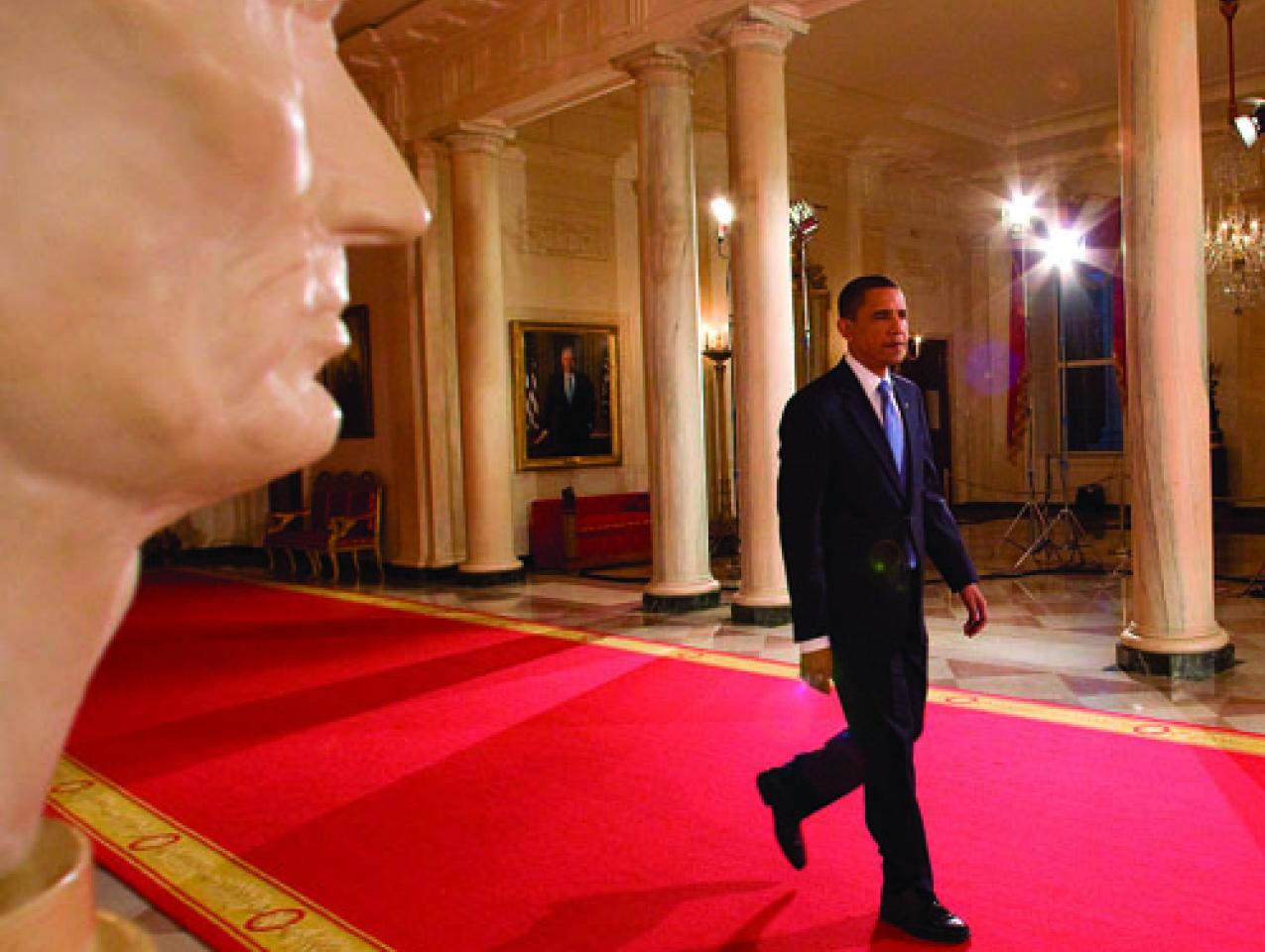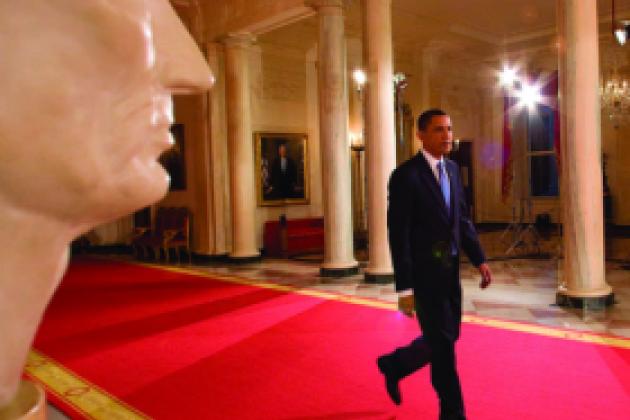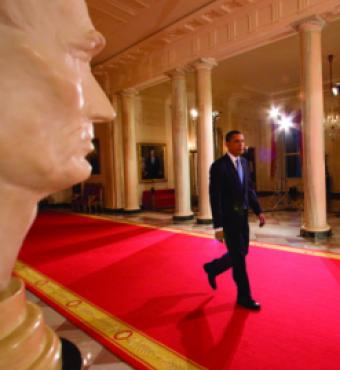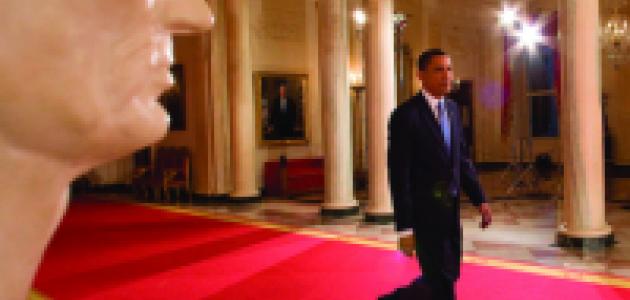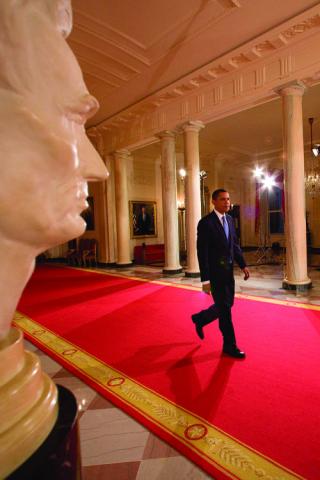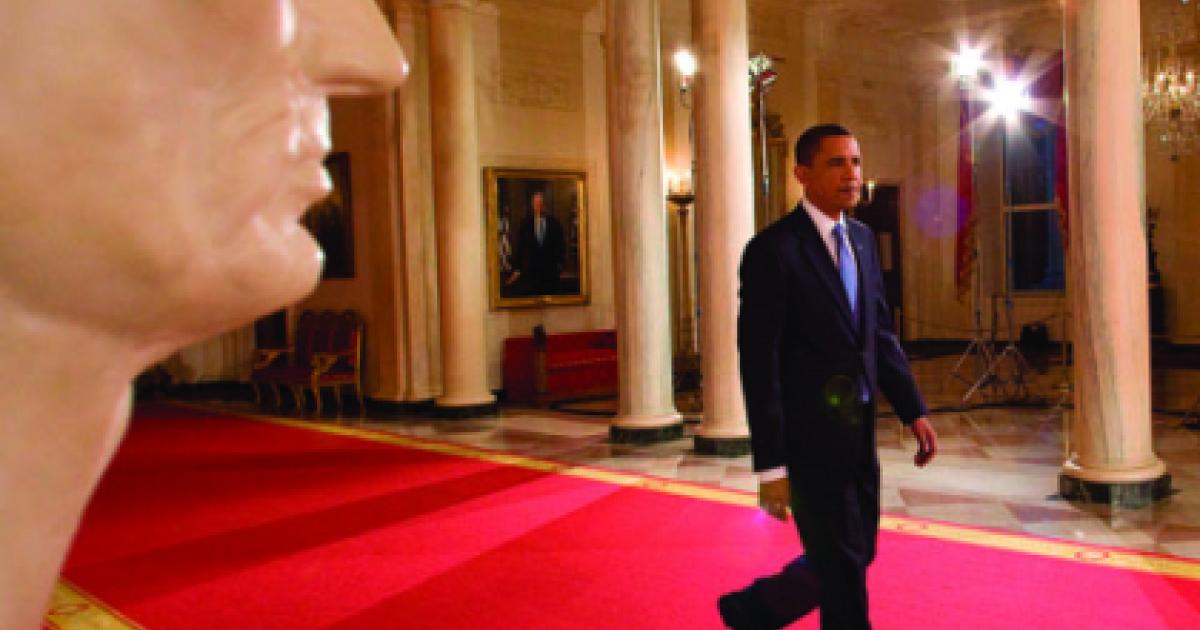- Budget & Spending
- Economics
- Law & Policy
- Regulation & Property Rights
- US
- Contemporary
- Security & Defense
- US Defense
- International Affairs
- US Foreign Policy
- Terrorism
- Campaigns & Elections
- Politics, Institutions, and Public Opinion
- The Presidency
- Health Care
- Civil Rights & Race
- History
It was last spring when President Obama brought together a group of presidential historians for what was supposed to be the first of many meetings. By available accounts, he was curious about the rise of the tea party, curious as to whether there had been precedents for this sort of backlash against the established order. He listened to these experts on the American presidency, but was prickly and didn’t give anything away.
We shouldn’t be surprised. What most engaged Obama before his rise to the highest office in the land was his own biography. He had stood aloof from the weight and the lessons of American history; where so many of his predecessors had sought comfort and guidance in the ordeal of presidents past, there was no great deference in him to the burdens those forty-two men carried. He didn’t look like those other presidents on the dollar bills, he said early in his political odyssey.
“Ghosts,” he said in one meeting with his national security advisers when the late Richard Holbrooke, his representative for Afghanistan and Pakistan, tried to draw parallels between Lyndon Johnson’s dilemmas in Vietnam and the current American engagement in Afghanistan. Vietnam was not particularly relevant to him, he told Bob Woodward in Obama’s Wars. He was thirteen in 1975, he said, when South Vietnam fell: “So I grew up with none of the baggage that arose out of the dispute of the Vietnam War. I also had a lot of confidence.”
In truth, his dilemma in Afghanistan was remarkably similar to Johnson’s. It was a “bitch of a war,” Johnson dubbed the Vietnam dilemma, a war he prosecuted without ever taking to it. By all appearances, there is an echo of all that in Obama’s view of Afghanistan.
Now and then Obama’s devotees nodded to American history with evocations of FDR’s New Deal and superficial parallels to JFK—the good looks, the glamour, the young children. But Kennedy had seen combat, was a Cold Warrior, and believed in the burdens of American power. Yes, he charmed Parisians and Berliners—but as the standard-bearer of an American empire of liberty. He never journeyed abroad to apologize on behalf of his country.
A president steeped in history would have never pushed ObamaCare on so thin a reed of public approval. In the great movement of U.S. history, Americans haven’t worshiped at the altar of charismatic leadership. They have been the most skeptical of peoples. They may have trusted several of their presidents through wars and economic downturns, but they have insisted on the wisdom of the public and on the ability of this republic of laws and institutions—and precedent—to see its way out of great dangers.
Americans have given big mandates to presidents only to send them packing when they lose the contingent mandate given by the electorate. Woodrow Wilson led the country through the Great War, only to be rebuffed, and to die later a broken man when he tried to impose the League of Nations on a country and a Senate dubious of it. Wilson was an absolutist, which doomed his cause. Of “the League fight” he would say, “Dare we reject it and break the heart of the world?” But the opponents of the League were not intimidated.
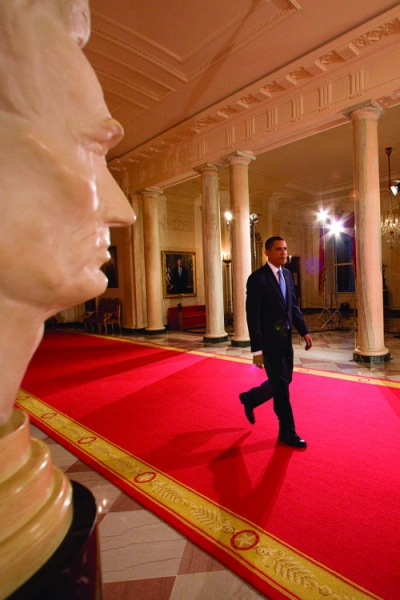
President Obama strides through the Cross Hall of the White House, heading for a prime-time press conference. History offers a reminder that even when voters trust their presidents through wars and economic downturns, they still insist on the wisdom of the public and on the value of laws, institutions, and precedent.
In recent times, Johnson in 1964 and Richard Nixon in 1972 won huge popular mandates only to be shunted aside when the consensus around them cracked. Ronald Reagan lost only one state in 1984—Walter Mondale’s home state of Minnesota, and only because his grace decreed that he not campaign on his opponent’s turf—but Reagan was forever courting House speaker and liberal Democrat Tip O’Neill.
We have never wanted our presidents to be above the political fray. The prerogatives of an “imperial presidency” may have grown, but the expectation of political argument and disputation and compromise has deeper resonance in the American tradition.
“As a student of history”—such is the way Obama described himself in his 2009 Cairo speech—our president would have known that a command economy is alien to the American temperament, that unfettered government spending was bound to arouse the antagonism of the American people. We were not all Keynesians after all, and the American people—to liberals’ wonderment—care about budget deficits.
To be sure, there was panic in the midst of the recession of 2008. That anxiety helped carry Obama to office; it bridged the gap between Obama and the white working class in the Rust Belt states. But it did not last. To their credit, ordinary Americans caught in the grip of a terrible economic malady still cared about the direction of the country and the debt burden their children would come to carry.
Obama had demonized the Bush tax cuts. They were, in the full length of his campaign, emblematic of the politics of greed and heartlessness. But he came around. There was no need to love or embrace them: it was enough that the president came down from on high to accept the logic of things and to step aside in the face of the popular revolt against big government and higher taxes.
The era of charisma, which began when Barack Obama was swept into office by delirium and enthusiasm, has drawn to a close. With the resounding repudiation of the midterm elections, the tax legislation, the ratification of a strategic arms pact with Russia, and the end of “don’t ask, don’t tell” thanks to the support of Republican senators, the Obama presidency has just begun.








